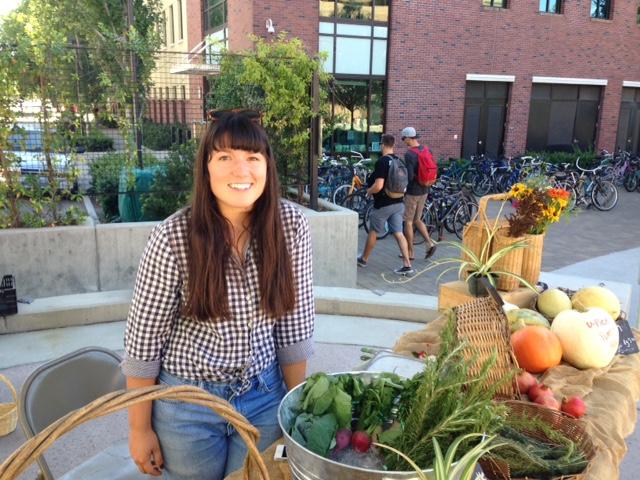
It’s a clear, blue day with a beating hot sun. A flourishing tract of cultivated land yields fresh squash, tomatillos, bell peppers and more, all ready to be extracted by the bare hands of only a few students.
Overwhelmed but not discouraged by the impending task, members of the Organic Vegetable Project tackle their duties with enthusiasm despite having to carry the load of multiple people
With two acres of produce to work with at the University Farm, the project currently has a staff of only five people, two of which were just added within the last week.
Elisabeth Quick, a senior agriculture major and Organic Vegetable Project market manager, started working with the project early in the spring of 2013.
While she enjoys it, it is time consuming with such a small crew, Quick said.
“We work about 15 hours (a week), up to 20 and sometimes 30,” she said. “Over the summer, we were all putting in 40 hours a week (starting) at five in the morning. It depends on the market days and what we need harvested.”
Even though each member has their own titles and duties, they often find themselves sharing in each other’s workload due to the lack of overall manpower.
“We all have our own areas of expertise, (but) for a long time I didn’t have enough people to help me harvest, so the field manager and the farm assistant would help,” Quick said.
Despite the amount of work the project requires on top of her coursework, Quick plans on continuing with it until she graduates.
“I really like the idea of slow food (as an alternate to fast food),” she said. “Real nourishment coming from real people. Having organic produce available to students and faculty that comes from less than 8 miles away – that’s huge,” she said. “We’re cutting down on fuel consumption, packaging and all these horrible inputs that aren’t even necessary.”
Kaycee Green, the project’s coordinator, said that throughout the last three years the project has generated roughly $11,000. But that is not enough to support the project’s goal to be self-sustaining, which is why members still rely heavily on grant support.
“All of the revenue from the OVP (Organic Vegetable Project) goes back into the project, whether in labor or supplies,” she said. “Though substantial, the current revenue alone is not sufficient to support all of the needs of the OVP.”
Though sustainability is the intent, “the main objective is to grow, evaluate and identify the most promising new vegetable varieties,” according to the project’s website.
The Organic Vegetable Project joins together Chico State, local farmers and other community members to provide:
• Local farmers with information
• The community with educational workshops
• Students with valuable management and research skills
• The campus with fresh produce
“It’s picked fresh (and) we can only use things that are certified organic,” Quick said. “Plus, we try to keep it affordable.”
Amanda Rhine can be reached at featureseditor@theorion.com or @am_rhine on Twitter.




